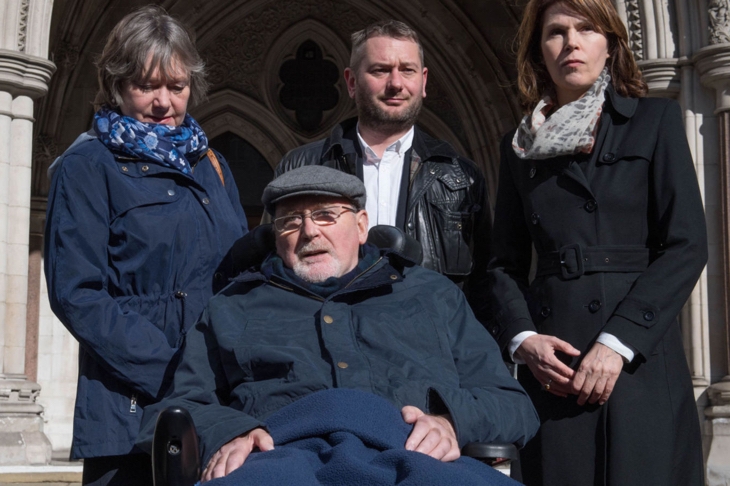You know, the quality on which the British pride themselves, pragmatism, has its limits. There’s a case for abstract moral thinking and it’s especially true when it comes to the fraught moral question of euthanasia, assisted suicide, right-to-die, whatever. And essentially the distinction is between actively killing someone, or allowing them to die – of doing something, as opposed to not doing something, of commission rather than omission. The little ditty by Arthur Hugh Clough, ‘thou shalt not kill but needst not strive/ officiously to keep alive’ sort of sums it up.
The latest right-to-die case comes before the court today, that of Noel Conway, a retired lecturer who has Motor Neuron Disease and is legitimately terrified at the prospect of his condition deteriorating further and further; he’s written movingly about it in the Evening Standard today. Most of us would feel exactly the same. So he wants doctors to be able to administer toxins that will ensure he dies at a time of his choosing. It’s the gist of the bill that Lord Falconer brought before parliament last time the issue came up, calling for patients who have terminal illness and less than six months to live, to be able to have their doctors kill them. It would give autonomy to the patient, with all the usual theoretical safeguards.
Except it’s not the only option. As the palliative care specialist, Ilora Finlay pointed out this morning on the Today programme, there is another way. It is for the patient to decline further treatment; usually artificial ventilation. That will result in death too, except it’s death in consequence of allowing nature to take its course. It’s not killing a patient; it’s allowing him to die. And crucially, it’s possible for palliative care experts to manage that death to make it painless rather than distressing.
The upshot is of course the same: the patient dies. But morally, there’s all the difference in the world between allowing a patient to decline the treatment that artificially keeps him alive (and managing the way death happens), and killing them.
There is, as it happens, a further distinction in other end-of-life cases, though it isn’t the one at issue here, between administering painkillers to the point at which they may kill the patient, and actually administering toxins with the intention of killing them. One act is designed to relieve pain, and has death as its side effect; the other turns doctors into killers. The end result is the same: death; but one changes the morality of medicine, the other doesn’t.







Comments